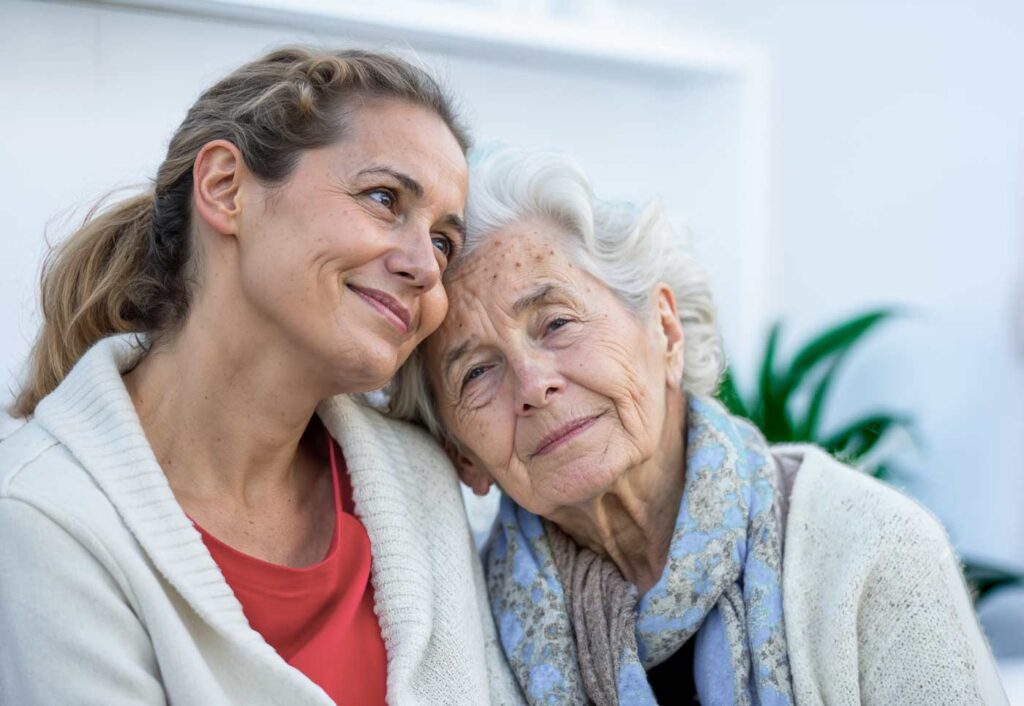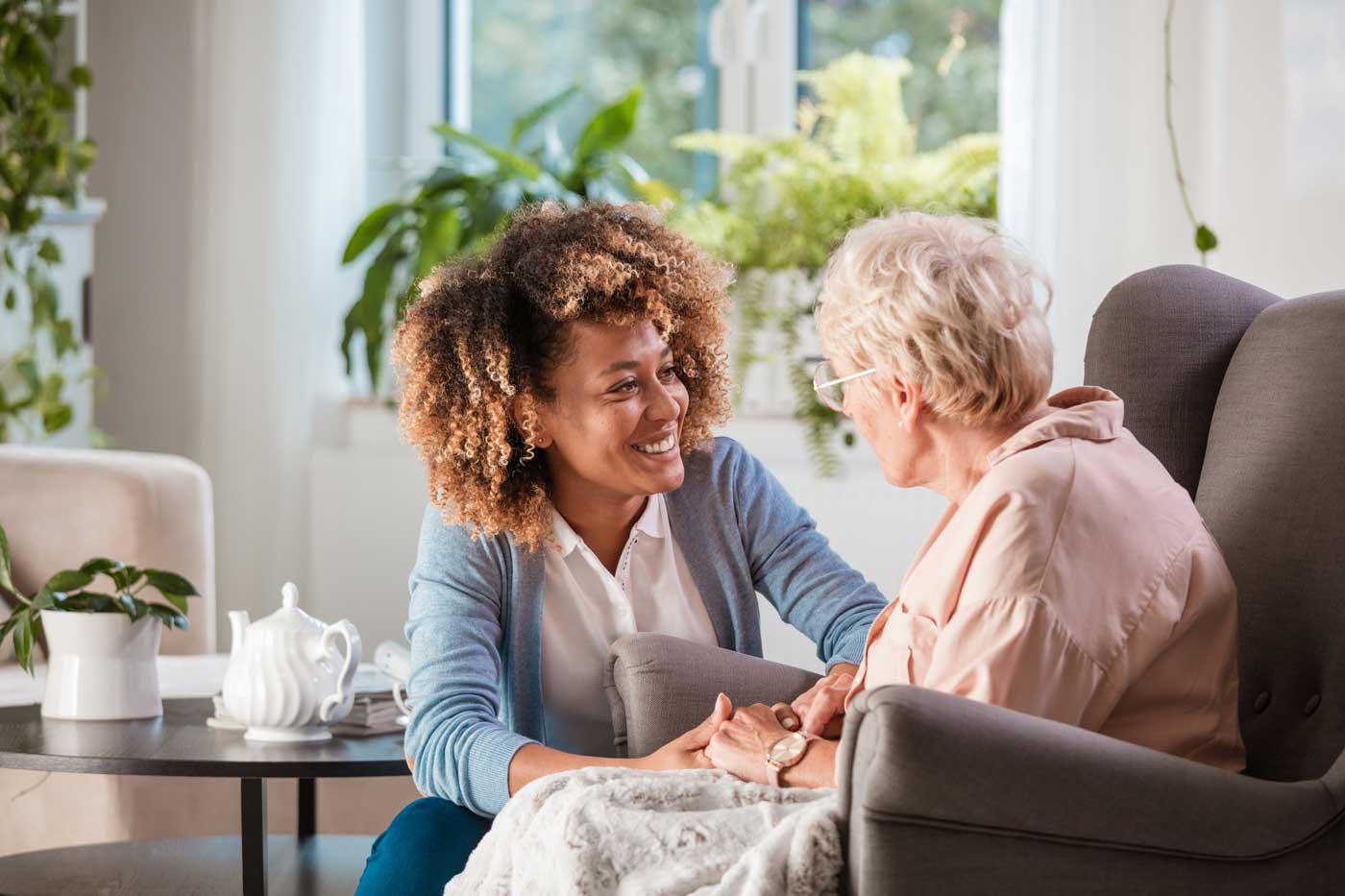The Importance of Training for Caregivers of Alzheimer’s Patients
For those caring for a patient with Alzheimer’s, every day can be different in a new and scary way. Luckily, there is an entire world of knowledge for those seeking to become caretakers for patients or loved ones.
Training caregivers is critical because it means that they are better equipped for making sure the individual is okay. With the proper training, they can learn to understand a patient, even in the latter stages of the disease. Training is not necessary, but it allows an education that permits a relationship between caregiver and patient that will allow for great quality of life.
Understanding the Three Stages of Alzheimer’s
In Alzheimer’s disease, three main stages show the progression of it throughout the patient’s body. Knowing these can help you to become clear on the point that this individual is at in their life, allowing you to care for them accordingly.
Each of the three stages leaves the patient at varying levels of vulnerability. Some may require more of your assistance than others. Only by judging the man or woman in your care can you make the call on what they need help with.
The Early Stage
The earliest stage of Alzheimer’s Disease is the easiest for all. The patient can still do almost all things on their own and does not require an assistant to help them from the day to day.
Someone impacted by Alzheimer’s in this stage:
● Can fully function on their own
● Can work
● Can participate in most social activities
● May experience minor memory issues
Alzheimer’s at this stage simply comes across as a normal sign of aging. However, as the disease progresses the activities a person can do begin to dwindle.
The early stage leads into the Middle Stage of Alzheimer’s disease. This time can often go unnoticed, leading to Alzheimer’s patients receiving their diagnosis of the disease as somewhat of a shock.
Caregiving for the Early Stage
Caregiving in this stage does not require much, as the patient is mostly capable of functioning on their own. If they know that they have Alzheimer’s, they may want you to stick around regardless of if any big change comes along.
In the early stages, caregivers can:
● Provide solace to the recently diagnosed
● Empathize with the emotions that are experienced
● Encourage exercise of all varieties that a patient can use throughout their diagnosis
● Give meals that are both nutritious and delicious at the same time
● Form your team goals while they can still remember and do so with a sensible mind
In the early stage, most of the care requires preparation for the next step of life. You as a caregiver should make sure that they are happy, well-fed, and take care of. This stage will allow you to slowly prepare for what is going to come next.
Caring for them in this transitional phase is so critical. As they go through this major shift, you can be with them every step of the way, comforting and supporting.
The Middle Stage
The middle stage is where everything starts to take a turn. This is often the hardest to deal with since the patient is mostly aware of the drastic changes that are starting to happen to their body. They begin to lose the ability to do simple tasks and may begin requiring your help with many of them.
A person experiencing the changes of this moment might:
● Jumble their sentences when they speak
● Have trouble preparing themselves for the day
● Act in ways that are not typical of their normal behavior
● Forget smaller and smaller things throughout the day
This stage can cause frustration and anger among patients that are not prepared for their memory to fade and dwindle. The best thing that you can do is be patient and comfort them whenever they need it. Stay with them and help them no matter how small the issue they may be struggling with.
Caregiving for the Middle Stage
This stage requires a little more caregiving than the next stage since the memory has started to shift significantly at this point. By being there, you can help them tackle the disease head-on rather than fearing it.
You can help them take on coping strategies for their disease such as:
● Making lists of tasks that they should accomplish throughout the day
● Repeating things as many times as is necessary
● Creating duplicates of items that are easily lost
● Comforting them as they continue to progress
Caregiving in the middle stage of Alzheimer’s can prove to be tricky, but this is where caregiving becomes even more important. Your patient will need you by their side as the disease progresses. Your duty to bring comfort and assistance will start to become a critical relationship.
The Late Stage
The late stage is the one that will cause you the most trouble in communicating. At this stage, most patients have lost their ability to do many things. You will need to help them every chance you get to prevent any accidental mishaps and embarrassment.
A person in the late stage of Alzheimer’s:
● Cannot walk on their own, or even walk at all
● Has a hard time eating food
● Becomes vulnerable to diseases that may cause more harm
● Can have more trouble taking care of bathroom problems
In the late stage, the biggest thing that you can do is make the patient comfortable. The last stage of Alzheimer’s brings a wave of new challenges as the body gives in to the disease more than it gas in the previous stages.
This stage can be hard. Your person probably won’t be able to respond verbally, and this can get worse as time goes on.
Caregiving for the Late Stage
Caregiving at this stage is the hardest of all, particularly if you’re caring for a loved one. Those with Alzheimer’s often lose their ability to talk altogether. With no verbal communication, it can be difficult to communicate with your person daily. There are some things you can do to be there for them.
Rather than speaking, you might try to communicate with them by:
● Playing their favorite song
● Reading a book that they loved to read
● Holding their hand
● Singing to them
● Telling them a story that is familiar to both of you
Though they will not be able to respond and react in the way that they could before the disease, they’re still present for it. Every visit becomes important as the disease continues to push forward.
Caring for the individual might involve making them comfortable, ensuring that they eat, and assisting your person in everyday activities such as finding their way to the restroom. As tasks grow harder and harder, you may need to be there more frequently to care for them.
Skills That a Caregiver Should Have for An Alzheimer’s Patient
As a caregiver, there are a few skills that you should have when looking after the safety and well-being of your person. These are practical skills that will come in handy for other situations later down the line. For your Alzheimer’s patient, they will help you to get them through every day that you can.
Keep on reading to learn about some of the critical skills and abilities a caregiver should have. We’ll also talk about why each one of them is important to both patient and caregiver alike.
The Ability to Drive
Though it may seem like a small problem, driving is a critical item to be able to do when caring for someone with Alzheimer’s. As the disease progresses, they won’t be able to drive themselves to the places that they once could. If you know how to drive, you can take them to these places.
Some of the locations that require driving include:
● Doctor’s visits for check-ups
● Grocery stores for weekly groceries
● Parks and other outdoor venues for exercise
● Emergency room in case something happens
Being able to drive is also great in case of an emergency. If you can drive, you can bring your patient in to see people rather than waiting for an ambulance to arrive at your home.
The Desire to Clean
As Alzheimer’s progresses, the person will start to become forgetful. This can result in a messy space that will become unlivable if left alone for too long. If you’re watching a person with this disease, you should be prepared to willingly clean every single day for the health and safety of both of you.
Cleaning every day can consist of:
● Wiping down kitchen areas to make sure that there isn’t any food build-up
● Cleaning the bathroom
● Sweeping the floors
● Taking out the trash
Keeping the home clean every single day will keep things in order as Alzheimer’s gets worse. Cleaning provides a safe space for an individual to be in as they go through this. Whether you enjoy it or not, a solid knowledge of cleaning is a good skill to possess.
Knowledge on How to Dress the Patient
When your patient loses motor functions, you will need to be there to step up for them and take on simple challenges that pop up every day. One of these is getting dressed. Though basic, it can prove nearly impossible for someone with Alzheimer’s. You will need to become comfortable with dressing and undressing them as the day goes on.
It’s natural to feel awkward about this stage in the disease. However, you should remember that you’re making life easier for them by helping them with this simple task. It might take some getting used to, but it will make their life so much easier in the end.
The Strength to Clean and Groom the Patient
Cleaning and grooming the patient also becomes vital in the later stages of Alzheimer’s. As their motor functions fall away, they will need you to help take care of themselves. This means assisting in bathing, brushing their teeth, applying lotion, and many other daily items that will keep them healthy and comfortable.
Some of the most critical tasks that you should help them with include:
● Taking care of their limbs, even as they lose the ability to walk
● Making sure that they are clean and comfortable
● Applying lotions to make sure that their skin doesn’t rub
● Brushing their teeth and flossing to keep them in top shape and avoid excessive dental visits
As with the dressing, this may seem awkward at first. You are improving the way that they can live their lives in the later stages of a degenerative disease. Whatever you can do is going to benefit them, no matter how uncomfortable it may make you feel.
If your loved one can communicate, talk to them about these later times before you get to that point. Having a solid understanding with them ahead of time can help make you both more comfortable with the situation as it comes to pass.
Dietary Knowledge
Making sure your patient’s health is okay means ensuring that they are getting all their proper nutrients throughout the day. This is especially important in the later stages, where they cannot communicate with you and tell you what their usual food routine consists of.
Read up on basic dietary knowledge to at least comprehend the basics as you care for your Alzheimer’s patient. You should become familiar with:
● The basic food groups
● Portion sizes and how many items each person should get a day
● How to get critical vitamins to your patient
● Any allergies or other food complications they may have
Food is the key to life, second only to water. Taking care of their nutrition will have a lasting impact on the quality of life that they possess throughout the remaining stages of this disease in their life. Knowing all that you can about the nutrients that they need is a skill that many forget, but that should be at the forefront of many caregivers’ thoughts and actions.
Patience
Patience is a trait that many people come with, and others struggle to bring to the surface. As Alzheimer’s progresses in the person that you are taking care of, patience will become more and more vital every single day. Things may be repeated, actions may become severe, but you need to understand that they are going through something terrible.
Patience will be required when:
● The person forgets things, over and over and over again
● The individual asks about items that they have already been told the answer to
● They get frustrated over their inability to remember or do small things
Patience is a source of comfort in times of distress. When they know that you’re there for them, your person’s quality of life will change. If you feel as though you don’t have the level of patience caregiving requires, it’s never too late to develop it. Work on it one day at a time, little by little. It will come.
Compassion
Compassion goes along with being patient. Allowing yourself to understand the pain and confusion that your person is experiencing will assist you in taking good care of them and help you to make them comfortable as they progress.
You can better your compassion for your person by educating yourself about the disease. By understanding what they’re going through, you can better yourself in how you care and provide for them.
Listening Skills
Listening will become crucial as Alzheimer’s impacts your person’s ability to communicate verbally. You may need to take the time to analyze each word or listen to a mumble as it happens. When speech disappears altogether, listening will take on an entirely new meaning for you and your patient.
In the later stages, listening can mean:
● Understanding small finger twitches or eye movements
● Watching their lips for a shift of some kind
● Monitoring their reactions to the items and questions they are presented with
By listening to small movements and actions as well as changes, you will be able to understand your person even more clearly as they progress further into later stages of Alzheimer’s. As with patience and compassion, listening is a skill that can be developed over time. By practicing it daily you will be able to improve your abilities quickly.
Protecting Your Alzheimer’s Patient
Many safety concerns come with the progression of Alzheimer’s disease. These are crucial to consider and anticipate when making the home a safe space for the patient. You should discuss these with your person in the early stages and implement them as you go on.
Below, we’ll talk about some of the biggest safety concerns with Alzheimer’s patients. We’ll also go over progressions strategies, and how you can deal with them as they happen.
Dealing with Falls
With Alzheimer’s comes an increased risk of falling. This can be dangerous, especially since many Alzheimer’s patients are over the age of 65. A fall would not be good if they are home alone or if they have a place that has a lot of stairs. Fortunately, there are some prevention strategies. You can discuss these with your person before Alzheimer’s progresses further.
Some prevention strategies include:
● The installation of railings
● Using a monitor that beeps if the patient falls to the floor
● Putting soft carpet of rugs on the floor to soften the fall
Being prepared for falls can make them less impactful if they do happen. You cand your patient should always be prepared, just in case.
Managing Medications
With an Alzheimer’s patient, medication can become a dangerous thing. If they forget that they already took it, there is always a possibility for an accidental overdose. This gets harder and harder as the disease pushes forward. There are some items that you can discuss with the individual before their condition worsens.
Some strategies you might take on can include:
● Investing in a pill bottle that dispenses the pills automatically each day at a certain time
● Coming over to monitor the pill-taking at a specific period in the day
● Keeping the medication with you and bringing it over when you come to visit them
All of these can help to keep the medications in check and taken on time. It’s best for the safety of the person you are caring for to keep a close eye on these things while they are in this state.
Necessary Emergency Procedures
Caregivers for patients with Alzheimer’s should always be prepared for an emergency, just in case. There are a few procedures that you should be familiar with in case something does happen. By being ready, you can prevent the risk of an extreme event occurring.
Some of the procedures a caregiver should know include:
● Having a way to get your patient out of the house in case of an emergency
● How to get the individual into the car in case of a medical crisis
● How to call for help in the case that leaving the house isn’t an option
You should be prepared for all types of emergencies, and how to guide your patient through them. Being ready benefits everybody’s future when it is done correctly.
The Best Alzheimer’s Caregiver Training Programs
Training is the most valuable course of action you can take for the patient you are taking care of. The more you know about Alzheimer’s, the easier it will become to ensure that they are living the best life that they possibly can.
There are a ton of training programs out in the world for those who are actively pursuing knowledge of this disease. We will go over a few of the best ones out there and talk about the fees and courses that come with them. You can make your own decisions from there and decide how you would like to advance your journey caring for someone with Alzheimer’s.
Alzheimer’s Association
The official Alzheimer’s Association offers many courses for caregivers to take. All of them are free of charge, so finances are not a problem with this program. All you need is a computer and a couple of hours to find quality education that will help you in taking care of your person.
Some of the courses they offer include:
● Living with Alzheimer’s: For Caregivers – Early Stage
● Effective Communication Strategies
● Living with Alzheimer’s: For Caregivers – Middle Stage
● Living with Alzheimer’s: For Caregivers – Late Stage
All of these are valuable resources, providing a guide for caregivers through every stage of the disease. You can learn a lot from visiting this website.
BrightFocus Foundation
The BrightFocus Foundation offers a wide variety of material about Alzheimer’s to those who are interested. Besides offering a training course of their own, they also provide helpful links to other websites where you can continue to educate yourself on this disease.
BrightFocus also takes pride in providing a toolkit for patients and caregivers alike to use. By spreading awareness, they help to make the situation easier for those who find themselves at the center of dealing with Alzheimer’s disease.
UCLA Health
UCLA Health provides an abundance of educational videos on their website that serve to educate caregivers in comprehending Alzheimer’s disease and learning how to plan. All of them are free of charge and cover small and large topics alike.
Some of the videos they have include:
● Repetitive Language
● Wandering
● Practical Tip for Traveling with a Loved One with Alzheimer’s Disease
● Dementia with Lewy Bodies
As you can see, the videos range from something as simple as a behavior to the complexity of how this form of Dementia operates. Looking here for educational purposes will serve any caregiver well.
National Certification Board for Alzheimer & Aging Care
If you are looking for a legal certification for becoming an Alzheimer’s caregiver, the NCBAC is for you. Here, you can apply to become a candidate to take an exam. If you pass this exam, you will receive an official certification of your status as a legal caregiver.
Receiving a certification:
● Ensures that you know what you’re doing
● Announces your professionalism to the world
A certificate exam may be a wonderful way to push yourself to learn more about being a caregiver for someone with Alzheimer’s. You will achieve something great and better yourself along the way.
Conclusion
Caring for someone with Alzheimer’s can be hard for both of you. Thankfully, there are many resources and ways to receive help along the way. You are not alone in your journey for bringing peace to your patient.
Becoming a caregiver can mean the world to someone who has been damaged by this disease. Taking care of them as they grow into this new life is an experience that will sprout love from the most unexpected of places.






